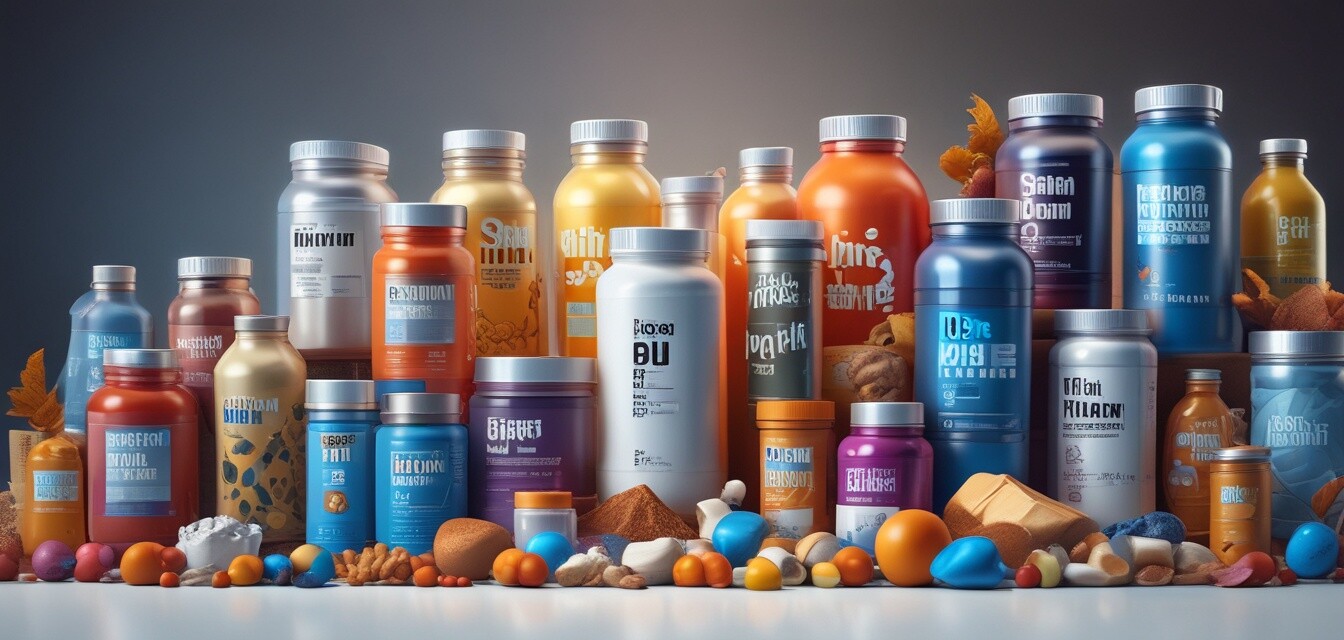
How social media is shaping protein supplement choices
- Social media platforms significantly influence consumer perceptions and choices in protein supplements.
- Trends often arise from influencer endorsements and user-generated content.
- The rise of communities on platforms like Instagram and TikTok shapes dietary decisions.
- Ethical sourcing and sustainability are becoming crucial consumer priorities.
- Transparency in ingredients and production processes is increasingly demanded.
In today's digital age, social media has transformed the way we interact with products, especially in the realm of health and wellness. One area significantly impacted is the ever-growing market for protein supplements. With platforms like Instagram, TikTok, and Twitter, consumers are constantly exposed to new brands, products, and trending diets. This article explores how social media shapes consumer choices in protein supplements and the trends that are emerging as a result.
The power of influencers
Influencers play a pivotal role in shaping consumer behavior. These individuals, often fitness enthusiasts, trainers, or nutritionists, share their personal experiences and recommendations, making them powerful advocates for protein supplements. Here’s how influencers impact choices:
| Influence Type | Description |
|---|---|
| Endorsements | Directly recommending protein supplements to their followers. |
| Tutorials | Demonstrating how to use supplements in meal prep or workouts. |
| Authenticity | Sharing personal stories and results, which builds trust. |
The impact of user-generated content
Social media's interactive nature allows consumers to share their experiences with protein supplements. This user-generated content significantly influences buying decisions. Here's a look at how this plays out:
- Reviews and testimonials on platforms like Instagram can sway opinions.
- Posts featuring before-and-after photos create a visual appeal, encouraging purchases.
- Hashtags help discover community conversations around specific products or diets.
Emerging trends in protein consumption
As social media continues to evolve, the trends impacting protein supplement choices also change. Some notable trends include:
- Plant-based options: With the rise of veganism, more consumers are turning to plant-based protein supplements.
- Clean labeling: Transparency in ingredient sourcing and production is prioritized by consumers.
- Sustainability: Consumers are increasingly choosing brands that demonstrate ethical sourcing practices.
- Personalization: Tailored supplements based on individual dietary needs and preferences are gaining popularity.
The role of online communities
Social media platforms have become communities where users can exchange tips, recipes, and advice about protein supplements. These communities foster a sense of belonging and support, enhancing consumer loyalty. Popular platforms include:
| Platform | Community Features |
|---|---|
| Visual posts, stories, and IGTV videos showcasing protein supplement usage. | |
| Groups focused on health and fitness, allowing discussions on protein-related topics. | |
| TikTok | Short, engaging videos demonstrating quick recipes and supplement tips. |
Consumer awareness and education
As social media disseminates information quickly, consumers are becoming more informed about the products they use. This awareness has led to increased scrutiny of:
- Ingredient quality and sourcing
- Brand ethics and sustainability efforts
- Marketing claims made by supplement companies
Conclusion
In conclusion, social media has profoundly influenced consumer choices regarding protein supplements. From the power of influencer marketing to the significance of user-generated content, consumers are increasingly informed and engaged. As trends shift towards ethical sourcing, sustainability, and transparency, brands must adapt to meet the growing demands of a socially conscious audience.
Pros
- Increased access to information about protein supplements.
- Greater variety in choices due to rising trends.
- Informed consumer decisions leading to better product choices.
Cons
- Overwhelming information that can confuse consumers.
- Potential for misinformation and misleading claims.
- Pressure to conform to social trends, disregarding personal needs.
For anyone interested in exploring more about this topic or related issues, check out our News & Trends category for the latest updates.